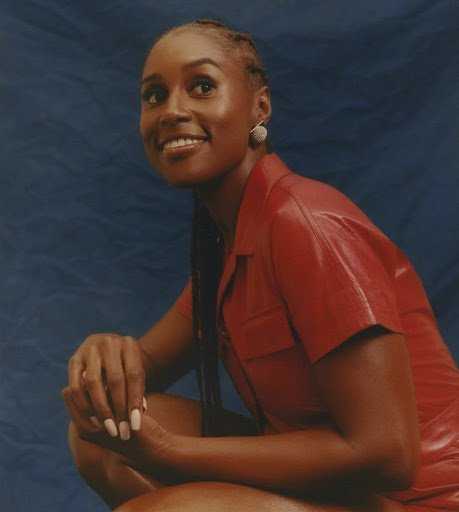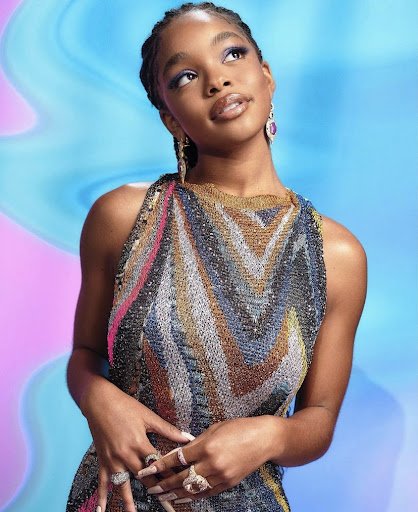Five Creatives Redefining How Black Stories Are Told
Christmas may be over, but February is the gift that keeps on giving. Valentine’s Day, Super Bowl Sunday and Groundhog Day all in one 28-day package? As if this wasn’t enough, we have my favorite facet of February: Black History Month. In honor of the month packed with celebrations of important Black figures, contributions and advancements, I’ve assembled a list of Black creatives making a difference in Black representation.
Issa Rae
Ever since Issa Rae began acting in high school, she knew she was destined for television screens. But in what capacity — the stereotypical Black best friend? The prospect offended her. Instead of fitting into the mold, she created “AWKWARD Black Girl” — a comedic Youtube series narrating her experience as a Black woman that would go on to inspire her hit show “Insecure.”
Defying the odds, Rae made a name for herself in Hollywood and increased her popularity over the past three years. Her secret to such an outstanding career? Authenticity.
“If a storyline is funny to me, if it’s real to me, if it moves me, then it’s my thing,” Rae said in a Glamour interview. “It’s my experience, so no one can take that away from me.”
This sentiment is evident in her work, which is centered on bringing Black and minority voices to life. The bold endeavor of producing, acting and starring in her own television series was a defiant act inspired by the lack of opportunities for Black people in Hollywood. The cast of “Insecure” is made up of nearly all Black actors, focusing on the lives of Black characters and sharing the vibrant, real and relatable aspects of life as a Black person.
Aside from “Insecure,” Rae has produced and acted in a myriad of films, the most recent being “The Lovebirds” on Netflix. Take it from me — any film of hers issa certifiable hit. You’ll end up learning a thing or two about Black culture while enjoying the witty works of the comedy queen herself.
Notable contributions: “Insecure,” “The Lovebirds,” “The Photograph” and “The Misadventures of Awkward Black Girl”
Marsai Martin
Nearly eight years after the role of Diane Johnson on ABC’s “Black-ish” threw her into the limelight, Marsai Martin has paved her own lane in the media industry. At 16, she became the youngest Hollywood executive producer in history after creating a media company she rightfully dubbed “Genius Productions.”
Her story-approval policy can be boiled down to a single criterion: “no Black pain stories.” There are more than enough films on Black trauma, Martin explained in an interview with The Hollywood Reporter. Instead, she wants the films she produces to be in their own class. No “-ish” about it, the girl is an icon.
Notable contributions: “Black-ish,” “Little” and “Saturdays” (coming soon to Disney Channel)
Amanda Gorman
Ladies and gentlemen, meet the one true girlboss. At 23, her poetry career broke new heights for Black writers — especially Black women. Her riveting writing has awarded her accolades like Glamour Magazine’s College Women of the Year Award and dubbed her as the first National Youth Poet Laureate, as well as the honor of being the youngest person to recite a poem at a presidential inauguration. The now famous poem, “The Hill We Climb,” said, “if we merge mercy with might and might with right, then love becomes our legacy and change our children’s birthright.” Now that’s a word. With such moving pieces revolving around femininity, community and the Otherness that accompanies being Black, calling her “influential” would be an understatement.
Notable contributions: “Won’t You Be My Sister,” “The Hill We Climb,” “We Rise,” “Sestina For My Sisters” and “In This Place”
Clint Smith III
Clint Smith is another powerful poet who produces pieces highlighting his lived experience as a member of the Black community. Smith writes of love, loss and the outcry for justice that so many Black Americans have been denied. “Counting Descent,” his poetry collection that received the 2017 Literary Award for Best Poetry Book, was inspired by the fatal shooting of Michael Brown and the protests that ensued as a result. Aside from this collection, Smith has an extensive catalog that depicts his passion for the Black community. Take the opportunity to enrich yourself if you haven’t read his work already.
Notable contributions: “Counting Descent,” “Your National Anthem,” “When People Say ‘We have made it through worse’” and “This Was The First Year I Could Not Remember Your Voice”
Michaela Coel
Three words come to mind when I think of Michaela Coel: fearless, unapologetic and raw. The British powerhouse is a screenwriter, director, producer and actress. Oh, and she’s the woman we have to thank for the brilliance that is “I May Destroy You,” the HBO series starring Coel herself as Arabella. The series focuses on the aftermath of her being sexually assaulted. As Arabella strives to recover the suppressed details of her assault, she hopes to do the same in other areas of her personal life. “I May Destroy You” reduces the stigma around conversations about sexual assault and provides Black women the representation we have been missing in difficult stories like it. I have a feeling we’ll be seeing plenty more of Ms. Coel far beyond this February.
Notable contributions: “I May Destroy You” and “Chewing Gum”
The longlist of creative legends is often overstuffed with forefathers. While it’s worthwhile to consume the incredible work they’ve left us with, it’s time to make way for the new wave of influential artists. We’re fortunate enough to be blessed with some of the brightest, sincerest and most innovative visionaries of the modern age — it would be a shame to not explore the works they’ve graced us with. And as you go on with your year, remember that Black creatives deserve your attention every month, not just February.
Strike Out,
Writer: Kaicha Noel
Editor: AJ Bafer
Tallahassee





